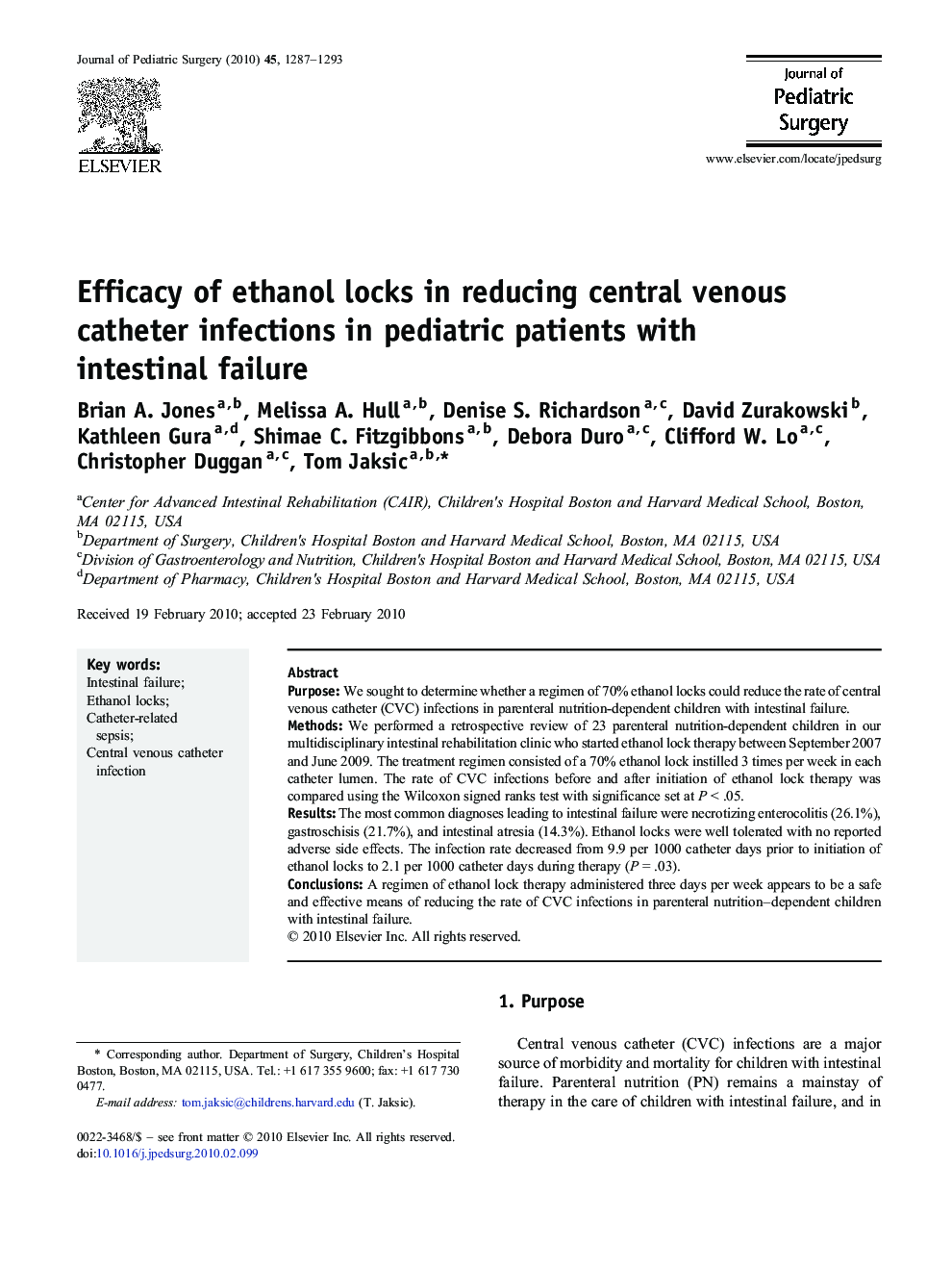| Article ID | Journal | Published Year | Pages | File Type |
|---|---|---|---|---|
| 4157512 | Journal of Pediatric Surgery | 2010 | 7 Pages |
PurposeWe sought to determine whether a regimen of 70% ethanol locks could reduce the rate of central venous catheter (CVC) infections in parenteral nutrition-dependent children with intestinal failure.MethodsWe performed a retrospective review of 23 parenteral nutrition-dependent children in our multidisciplinary intestinal rehabilitation clinic who started ethanol lock therapy between September 2007 and June 2009. The treatment regimen consisted of a 70% ethanol lock instilled 3 times per week in each catheter lumen. The rate of CVC infections before and after initiation of ethanol lock therapy was compared using the Wilcoxon signed ranks test with significance set at P < .05.ResultsThe most common diagnoses leading to intestinal failure were necrotizing enterocolitis (26.1%), gastroschisis (21.7%), and intestinal atresia (14.3%). Ethanol locks were well tolerated with no reported adverse side effects. The infection rate decreased from 9.9 per 1000 catheter days prior to initiation of ethanol locks to 2.1 per 1000 catheter days during therapy (P = .03).ConclusionsA regimen of ethanol lock therapy administered three days per week appears to be a safe and effective means of reducing the rate of CVC infections in parenteral nutrition–dependent children with intestinal failure.
